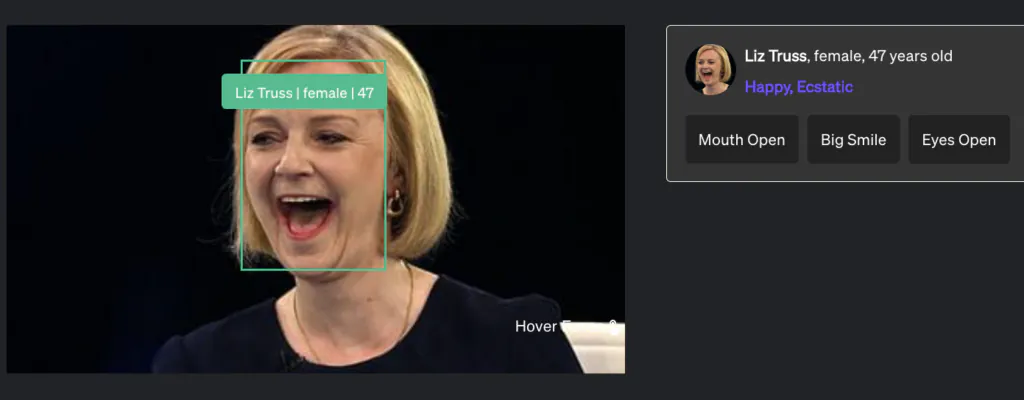There is no doubt that in Dec 2022, with the release of ChatGPT, we didn’t fully understand the tsunami of AI coming towards us. Programmable models like DALL-E, Stable Diffusion and Midjourney came hot on the trails, and quickly more and more AI platforms emerged and joined the AI goldrush. Every week something new – this week Heygen released an Avatar AI. Making sense of it all is quite a challenge, especially for us in the media and entertainment industry. In 2023 alone, billions of queries were processed, reflecting the exponential growth in AI utilization across various sectors, ushering in a new era of innovation.
The talk at the moment is about the creative capabilities of AI, particularly when videos of what SORA can create via prompts have astounded and actually scared many people in the industry. You have people like Tyler Perry halting an 800 million dollar expansion of a studio set after being shocked by the advancements of AI. And one key issue of contention with all three major guilds in recent strikes was the use of AI technologies and how they affect the film industry’s relative aspects.
All of this raises serious ethical questions for content producers. Who is in charge of the work? Where are the boundaries between fact and AI generation? What are the intellectual property implications, particularly since every AI platform has been trained against real content produced by humans. Isn’t that some form of copyright infringement? When AI can create completely convincing images from a brief text description, what is truth, and when does it matter?
These ethical dilemmas can make media businesses a bit uneasy in terms of the creation. You are starting to see content appearing on sites such as TikTok with notes created with AI. This will increase in the coming months with platforms providers asking you to confirm if any content that you upload was produced with AI
That’s the context, but can AI be good for you? The answer is overwhelmingly yes! AI can be a lifesaver in some areas. It’s like this: people are great at the fun, creative stuff, while computers excel at the dull, repetitive tasks. AI is just another example of this age-old truth (although it’s getting better by the week!)
It’s all about the metadata
Think of asset management as our compass in navigating the vast expanse of our content storage and LTO archives. By adding rich metadata descriptions, we not only streamline our search process but also unlock hidden treasures within our archives. With robust metadata with the assistance of AI-powered capabilities, we open doors to innovative possibilities, propelling our productions at an accelerated pace
At EditShare, we’re all about helping you keep track of your content. Whether you’re producing blockbuster movies or TikTok videos, our FLOW asset management software bundled with our EFS storage and archive systems is the optimal choice. One fundamental truth with all asset management platforms is the better the metadata the easier it is to find the raw material to tell your story.
The real timesaver: Intelligent software
Completing good, detailed metadata is a time-consuming business and sometimes, it is not an especially rewarding task – which can lead to human fatigue and, in turn, errors. Spending hours or even days in a darkened room manually tagging hours of video can be tough, but it is needed if you want to be sure you can later find the people, places and items you need; to sort the best takes from the OK; to find new and informative B-roll to tell the story.
But computers are good at repetitive tasks, so this is an ideal application for AI. If the software is intelligent enough, it can reliably tag objects, people, locations and even emotions. It can process audio, transcribe the speech and sync the script to timecode, so that users can quickly jump to the part of the clip they need. Processing audio and video together helps fine tune the script tracking and understanding of emotions.
This all sounds great in theory – a real timesaver at the point of ingest, and throughout the extended life of the content. But can it be done in practice?
FLOW AI for Superhuman Vision
At EditShare, our team conducted thorough market research and identified a promising company headquartered in Berlin. This company, known as Mobius, caught our attention with its visionary approach and an impressive technology stack. Their AI platform, Superhuman Vision, aligns closely with our own aspirations, making them an ideal partner for our goals.

So we have integrated Mobius into our FLOW asset and workflow management system. We call the add-on FLOW AI. It adds yet another layer to our already highly automated environment. FLOW AI can process content for keywords in a scene, automatically tag people based on facial recognition and improve the post environment with intuitive scene and detection algorithms.
One of the operational considerations in AI is that it has to be trained to know what you know. FLOW AI is supplied with a lot of basic knowledge already in its database: as soon as you plug it in, it can recognize more than 5000 objects, emotions, actions and even 10,000 famous people. And you can teach it more – you can add people to the database, for instance, and it will index them every time they appear in your archive.

FLOW AI also includes intelligent support when searching for content. User requests can be very specific or quite vague, and the retrieval system will suggest relevant clips beyond the usual, so that stories become more interesting.
Obvious applications are systems with a high throughput of content, like newsrooms and sports broadcasters. Say a golfer hits a hole in one: you can quickly find all the other times this golfer has done it; or it has been achieved on this hole; or even disastrous triple bogeys at the same place.
It is a powerful tool for other users, too. Say you are producing a multi-part drama serial, and you need some cutaways to manage the pace of the story. By framing your request by mood, weather, time of day or people in shot, you can help the editor by offering clips that will match and flow seamlessly. For post houses versioning content for different markets, it can help by identifying the points which may need conformance editing, like nudity or swearing.
The partnership with Mobius is already proving very worthwhile. The algorithms in their software not only save time but offer more accurate, richer results, and as users get into the capabilities of FLOW AI, the benefits continue to grow. Object detection is just one string to our AI capabilities, with other integrations including speech to text and translation, but that’s something for a future blog!
AI can be a powerful tool when used to support human decision-making. That is why we see FLOW AI as a great enhancement for our storytelling platform.
Want to find out more? Download our guide to FLOW’s AI solutions below, or click here to book a demo with your local EditShare team member.





